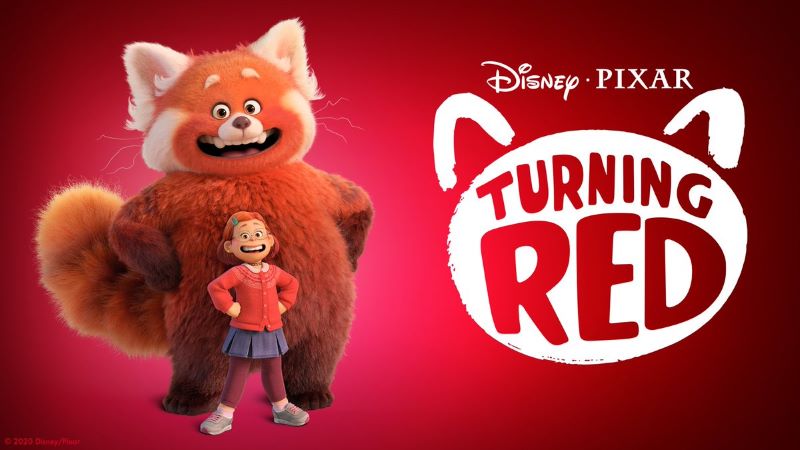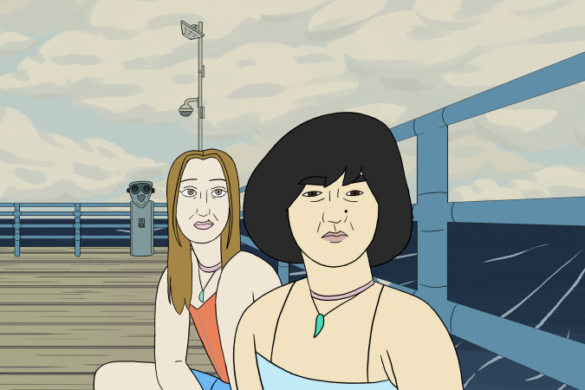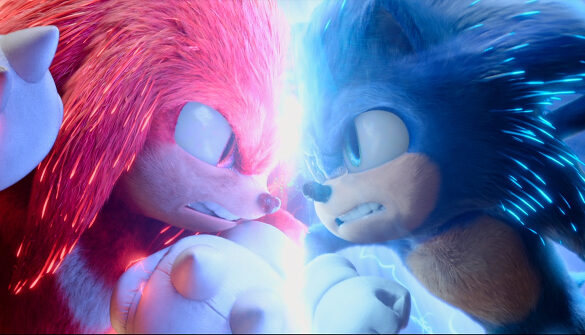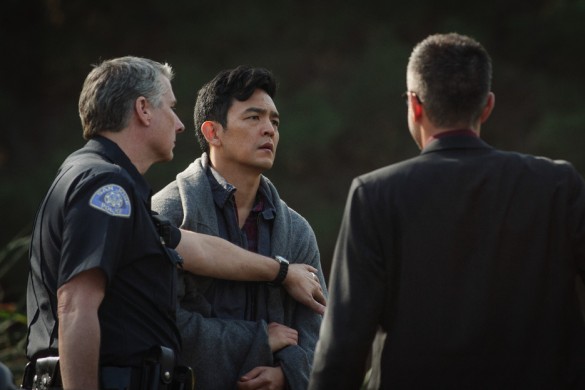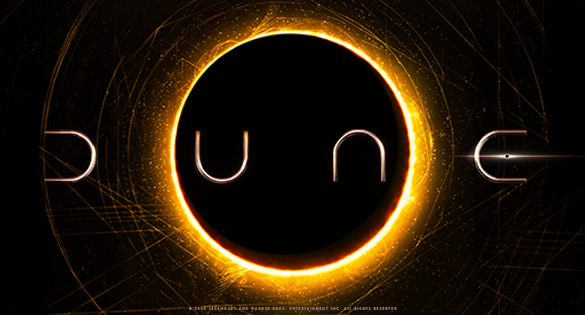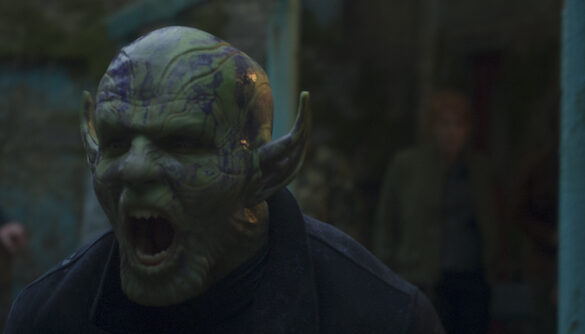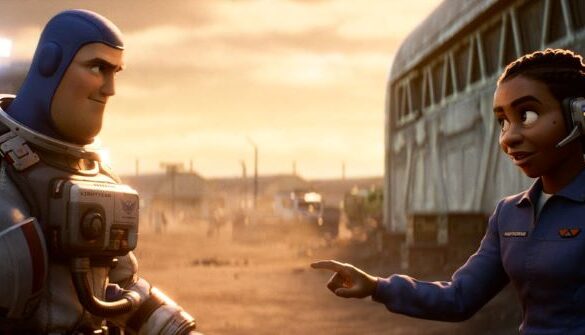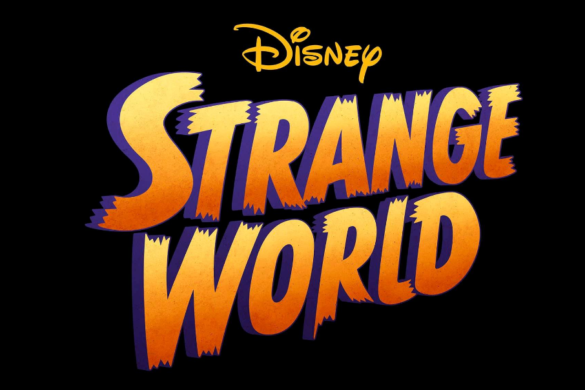Growing up can be a strange moment for all of us, especially when going through the early stages of puberty. But as Domee Shi’s “Turning Red” tries to tell its audiences that despite all of the gross and messy processes, everything will be fine and that we will be okay. It’s just a part of life. Well, maybe not the turning into a giant red panda part. But you get the point.
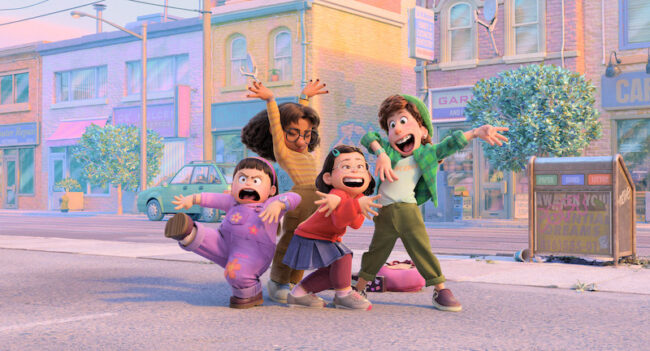
Thatsitla.com had a chance to join their fellow journalists to talk to the cast of Turning Red at a virtual press conference. Some recalled their experiences growing up as teenagers, while others spoke about how their current lives are similar to their characters.
“Turning Red” chronicles the story of Meilin “Mei” Lee (Rosalie Chang), a 13-year-old Chinese-Canadian girl growing up in Toronto in the early 2000s. Torn between staying her mother’s, Ming Lee’s (Sandra Oh), dutiful daughter, and the chaos of adolescence, Mei’s world is further complicated when she begins to undergo puberty. To make things worse, whenever she gets excited or stressed out, she transforms into a giant red panda.
“Yeah, for me. Well, after watching the movie, my mom and I looked at each other like, ‘this is really similar,” Chaing said. “There’s so many odds and really weird coincidence. First of all, my mom’s middle name is Ming. There’s no way they could have known that.”
“My favorite animals were actually red pandas before the whole project even started before I was even introduced,” Chaing continued. “But the main thing is that my mom actually calls me Mei Mei before this project because Mei Mei means little sister in Chinese. And so when it came to a point where everyone called Mei Mei, even the people who were younger than me, which you’re not supposed to do. So when she goes, I’m perfect little Mei Mei. I’m like, ‘Hey, that I literally went through that.'”
For Oh, she saw the 40-year friendships she shares now portrayed in this film. The Golden Globe award-winning actress said that Miriam (Ava Morse) reminded her of her childhood best friends. “I love about this film through friendship, and also music, it’s that precious time when you’re starting to figure out who you are when your friends become really, really important. You know, for me, the girls that I grew up with in Ontario. We’re still all friends. I love that,” she said.
For Morse, she sees the growing and changing of friendships occurring during high school, which can be dark and stressful at times. While she recognizes that, she also sees the beauty in those changes because it’s a collective moment in time that everyone goes through.
“Everybody’s in that together and just kind of put in all into living their life the best they can. And I think that’s great. And all my friends mean so much to me,” Morse said. “And they’re all very supportive no matter what. So I was really inspired by my own friends, and I put them into Miriam herself because she is such a supportive and amazing friend to Mei Mei and the other girls, but because my friends are so supportive and always there for me no matter what. So I thought was it was really cool to kind of give back.”
“The way this movie was very relatable for me is to all those aspects of like being goofy together as friends can truly be yourself,” Hyein Park, “Turning Red” story artist and voice of Abby said. “And those are the moments where I feel like throughout my very ripe age, whenever I had the hardest time, those are the things that pushed me through and helped me through. I have those friends just to be myself cry, or be super goofy and be crazy. So those are the parts that I related to most.”
Much of that friendship that we see in “Turning Red” is represented by a shared love for boy bands, specifically, 4*Town. “I remember when, it’s gonna be very Canadian of me, but I remember going into grade nine, and I went to my first concert to see Marianas Trench,” Maitreyi Ramakrishnan, who voices Priya said. “And I lost my mind. I was always wondering, like, why do people cry at a concert? Oh, like, happy? Like, shouldn’t you be excited to be there? Like, you would be smiling, maybe laughing those. But then, as soon as he came out on stage, bawling, I was. Like, I understand. I understand why. I was so emotional. I didn’t know why. But it just made sense.”
But those aren’t the only preconceived notions subverted in “Turning Red” The film positively changes the way female friendships and sisterhoods are portrayed. It would be a significantly positive change for this generation and those going through the same experiences as the characters on screen. While it being catty or backstabby was not Oh’s experience, she admitted to “start behaving like those tropes, because that’s what we would that we see.”
For Park, it was important that the friendship portrayal came from an authentic place and what was on screen be a celebration of friendship rather than something that added to those harmful tropes.
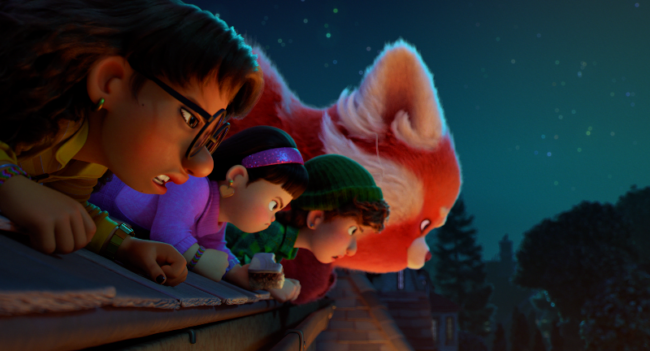
“Having young women and young girls in my life watching television and films with them over the years, you just realize it. I don’t know who sets this up that girls are like this because I don’t think it’s very true,” Oh added. “I think this is an extremely good representation of deep friendships and the highs and the lows.”
Ramakrishnan agreed. “I think with like TV and film, we always portrayed that, like your love interest is the one that you should be closer with, you know, like, that’s like the real bond,” she added. “That always made me sort of skeptical because wouldn’t childhood best friend know you better? Don’t they know what your favorite ice cream flavor is? Don’t they know what to do when you’re having a breakdown? So yeah, that’s important. And, you know, growing up, if you don’t have that, you can then get all the lovely internalized misogyny where you’re like, ‘oh, yeah, I only like hanging out with guys. Because girls are like, so dramatic.’ No, no, that’s not that.”
“So it’s so awesome that we have this and during read between the four girls, because now my little cousin gets to see like, yeah, yeah, this is the kind of girl gang you want, where it’s just chill, you get to be your goofy self, that’s able to just be who you are,” Ramakrishnan said. “But you also need to have those crying moments where it’s like, hey, I really need support. I need someone who just understands me without having to explain myself and explain who I am and get that weird validation. You’re already feeling valid.”
“Pixar has a very wide younger audience. And I feel like people like I grew up watching a bunch of Pixar movies, and now this is for like a new generation of people who can, there they can kind of first see what a good solid female friendship is like, and being able to be a part of that. So I mean, like, I am honored. Like, that is such a cool thing to be able to say,” Morse said.
And even with “Turning Red” subverting tropes and celebrating female friendships as they should be, not what is perceived to be, the film also honors their intelligence and entrepreneurial spirits – okay, let’s call it what it really is, a panda hustle. “They’re not afraid to be smart. Yeah, not afraid to be smart. They’re not afraid to like, like their work. They’re extremely entrepreneurial in this. They have their eyes on the prize, which is they want to go to 4*Town, and they make it happen,” Oh said. “Also with a panda, but they make it happen. And I just really also appreciated how it’s like all these girls, even in their young, young womanhood, are in charge of their lives, and they’re making their decisions. And they have a good time doing it.”
“Turning Red” launches on Disney+ March 11, 2022.

